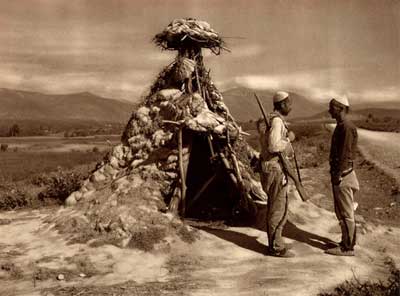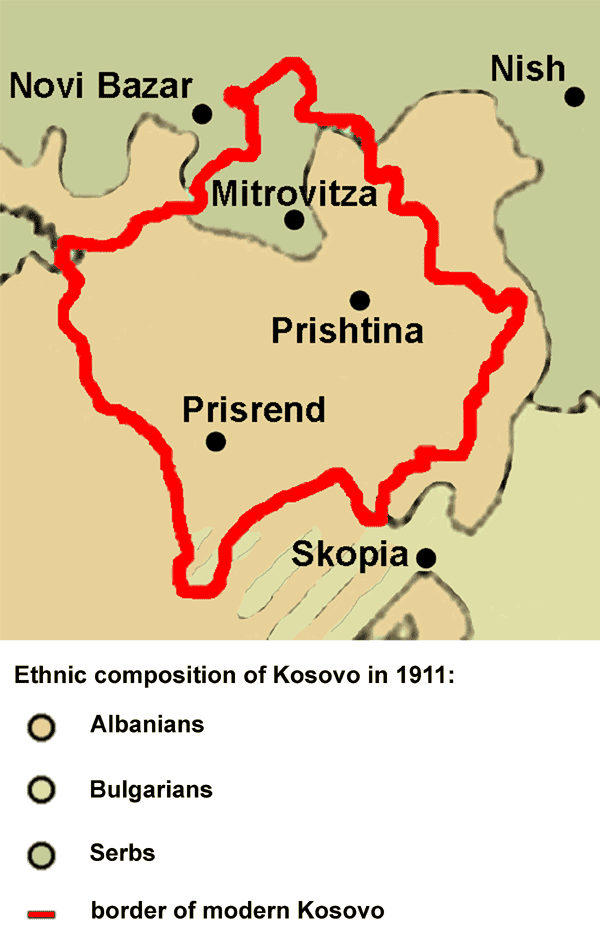|
Kachak Movement
The Kachak Movement was a series of Albanians, Albanian uprisings in Albanian-populated territories in Kosovo, Vardar Macedonia and Sandžak from 1919 to 1927. The uprisings began after the end of the First World War when Kosovo became part of the new Kingdom of Serbs, Croats, and Slovenes (also known as Yugoslavia). Parts of the Albanian population which resisted Yugoslav rule formed the Kachaks, Kachak guerrilla movement under the leadership of the Committee for the National Defence of Kosovo and conducted military operations and guerrilla-style attacks against Yugoslav soldiers and administrative establishments. In response to the rebellions, Yugoslav authorities retaliated by conducting operations against the rebels and the civilian population. During this period, many Yugoslav colonization of Kosovo#Massacres of Albanians, atrocities were reported against the Albanian population, which included Massacre, massacres, destruction of villages and looting. It is estimated that app ... [...More Info...] [...Related Items...] OR: [Wikipedia] [Google] [Baidu] |
Kingdom Of Yugoslavia
The Kingdom of Yugoslavia was a country in Southeast Europe, Southeast and Central Europe that existed from 1918 until 1941. From 1918 to 1929, it was officially called the Kingdom of Serbs, Croats, and Slovenes, but the term "Yugoslavia" () has been its colloquial name as early as 1922 due to its origins. "Kraljevina Jugoslavija! Novi naziv naše države. No, mi smo itak med seboj vedno dejali Jugoslavija, četudi je bilo na vseh uradnih listih Kraljevina Srbov, Hrvatov in Slovencev. In tudi drugi narodi, kakor Nemci in Francozi, so pisali že prej v svojih listih mnogo o Jugoslaviji. 3. oktobra, ko je kralj Aleksander podpisal "Zakon o nazivu in razdelitvi kraljevine na upravna območja", pa je bil naslov kraljevine Srbov, Hrvatov in Slovencev za vedno izbrisan." (Naš rod ("Our Generation", a monthly Slovene language periodical), Ljubljana 1929/30, št. 1, str. 22, letnik I.) The official name of the state was changed to "Kingdom of Yugoslavia" by King Alexander I of Yugosla ... [...More Info...] [...Related Items...] OR: [Wikipedia] [Google] [Baidu] |
Zog I Of Albania
Zog I (born Ahmed Muhtar Zogolli; 8 October 18959 April 1961) was the leader of Albania from 1922 to 1939. At age 27, he first served as Albania's youngest ever Prime Minister (1922–1924), then as president (1925–1928), and finally as King (1928–1939). Born to an aristocratic beylik family in Ottoman Albania, Zogolli was active in Albanian politics from a young age and fought on the side of Austria-Hungary during the First World War. In 1922, he adopted the name Ahmed Zogu. He held various ministerial posts in the Albanian government before being driven into exile in June 1924, but returned later in the year with Yugoslav and White Russian military support and was subsequently elected prime minister. Zogu was elected president in January 1925 and vested with dictatorial powers, with which he enacted major domestic reforms, suppressed civil liberties, and struck an alliance with Benito Mussolini's Fascist Italy. In September 1928, Albania was proclaimed a monarchy and he ... [...More Info...] [...Related Items...] OR: [Wikipedia] [Google] [Baidu] |
League Of Prizren
The League of Prizren (), officially the League for the Defense of the Rights of the Albanian Nation (), was an Albanian political organization that was officially founded on June 10, 1878 in the old town of Prizren in the Kosovo Vilayet of the Ottoman Empire. It was suppressed in April 1881. The Treaties of San Stefano and Berlin assigned areas inhabited by Albanians to other states. The inability of the Porte to protect the interests of a region that was 70 percent Muslim and largely loyal forced Albanian leaders to organize their own defence and to consider the creation of an autonomous administration, as Serbia and the other Danubian Principalities had enjoyed before their independence. The league was established at a meeting of 47 Ottoman beys. The initial position of the league was presented in the document known as Kararname. With that document, Albanian leaders emphasized their intention to establish autonomy within the Ottoman Empire by supporting the Porte and " ... [...More Info...] [...Related Items...] OR: [Wikipedia] [Google] [Baidu] |
Albanian Nationalism
Albanian nationalism is a general grouping of nationalism, nationalist ideas and concepts generated by ethnic Albanians that were first formed in the 19th century during the Albanian National Awakening (). Albanian nationalism is also associated with similar concepts, such as Albanianism. "Henceforth, Hoxha announced, the only religion would be "Albanianism." Hoxha was using nationalism as a weapon in his struggle to break out of the Soviet bloc." ("Shqiptaria") and Pan-Albanianism, that includes ideas on the creation of a geographically expanded Albanian state or a Greater Albania encompassing adjacent Balkans, Balkan lands with substantial Albanian populations. The onset of the Great Eastern Crisis (1875–1878), which threatened the partition of Albanian-inhabited lands of the Balkans by neighbouring Orthodox Christian states, stimulated the emergence of the Albanian National Awakening and the nationalist movement... para. 5.... "Due to religious ties of the Albanian majority po ... [...More Info...] [...Related Items...] OR: [Wikipedia] [Google] [Baidu] |
Independent Albania
Independent Albania () was a parliamentary state declared in Vlorë (at the time part of Ottoman Empire) on 28 November 1912 during the First Balkan War. Its assembly was constituted on the same day while its government and senate were established on 5 December 1912. The delegation of Albania submitted a memorandum to the London Conference of 1913 requesting international recognition of independent Albania. At the beginning of the conference it was decided that the region of Albania would be under Ottoman suzerainty but with an autonomous government. The requests by the delegation for recognition based on the ethnic rights of Albanians were rejected and the treaty signed on 30 May 1913 partitioned a major part of the claimed lands between Serbia, Greece and Montenegro, leaving as independent territory only a central region, which was put under the protection of the Great Powers. The ambassadors of six Great Powers met again on 29 July 1913 and decided to constitute a new state, ... [...More Info...] [...Related Items...] OR: [Wikipedia] [Google] [Baidu] |
Interwar Period
In the history of the 20th century, the interwar period, also known as the interbellum (), lasted from 11 November 1918 to 1 September 1939 (20 years, 9 months, 21 days) – from the end of World War I (WWI) to the beginning of World War II (WWII). It was relatively short, yet featured many social, political, military, and economic changes throughout the world. Petroleum-based energy production and associated mechanisation led to the prosperous Roaring Twenties, a time of social mobility, social and economic mobility for the middle class. Automobiles, electric lighting, radio, and more became common among populations in the developed world, first world. The era's indulgences were followed by the Great Depression, an unprecedented worldwide economic downturn that severely damaged many of the world's largest economies. Politically, the era coincided with the rise of communism, starting in Russia with the October Revolution and Russian Civil War, at the end of WWI, and ended with ... [...More Info...] [...Related Items...] OR: [Wikipedia] [Google] [Baidu] |
Yugoslav Colonisation Of Kosovo
Over the course of the twentieth century, Kosovo experienced four major colonisation campaigns that aimed at altering the ethnic population balance in the region, to decrease the Albanian population and replace them with Serbs and Montenegrins. The colonisation programme begun in the early twentieth century between the kingdoms of Kingdom of Serbia, Serbia and Kingdom of Montenegro, Montenegro during the Balkan Wars and was later implemented by their successor state Yugoslavia at certain periods of time from the interwar era until 1999. Albanians formed the ethnic majority in the region when it became part of Yugoslavia in early twentieth century. Fears over Albanian separatism and the need to secure Kosovo, a strategic territory for the country drove the state to pursue colonisation as a solution. The Serbian political elite held that Kosovo was a former Old Serbia, late medieval Serb territory that following the Ottoman conquest was settled by Albanians. As such, the colonisati ... [...More Info...] [...Related Items...] OR: [Wikipedia] [Google] [Baidu] |




